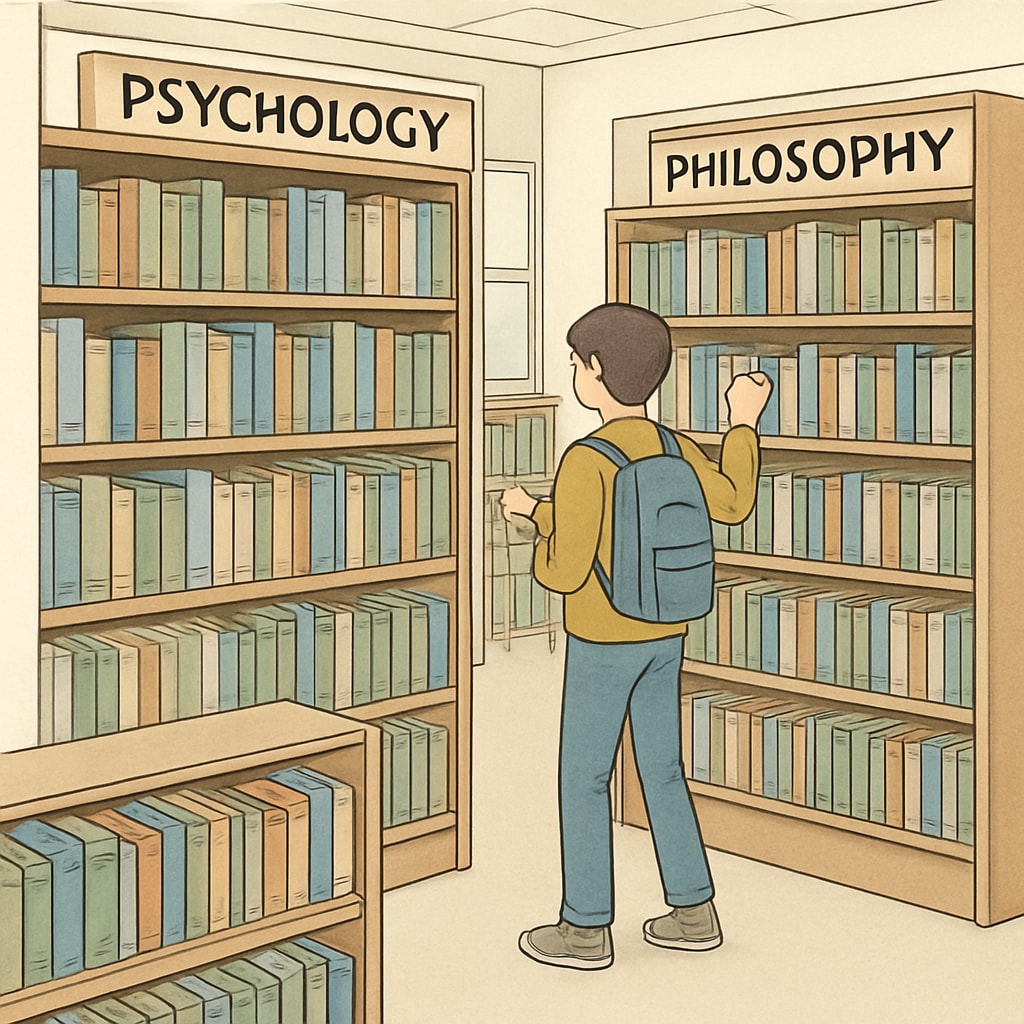Psychology and philosophy are subjects that help us understand ourselves and the world around us. For K12 students, exploring these fields independently can be both intellectually rewarding and personally enriching. This article offers a beginner-friendly guide to self-learning psychology and philosophy, complete with practical tips and curated resources to help young learners dive into these fascinating areas of study.
Why Study Psychology and Philosophy?
Psychology, the study of the mind and behavior, helps us understand why we think, feel, and act the way we do. Philosophy, on the other hand, explores fundamental questions about existence, morality, and knowledge. Together, these subjects encourage critical thinking, foster empathy, and nurture emotional intelligence. For K12 students, learning psychology and philosophy can provide tools to navigate relationships, make ethical decisions, and approach challenges with a thoughtful mindset.

Getting Started: Tips for Self-Learning
Before diving into resources, it’s important to approach self-learning with curiosity and discipline. Here are some tips to get started:
- Set clear goals: Decide what you want to learn, whether it’s understanding emotions, exploring ethical dilemmas, or studying famous thinkers.
- Create a routine: Dedicate specific times each week to reading, reflecting, and taking notes.
- Start small: Begin with beginner-friendly books or videos to avoid feeling overwhelmed.
- Engage actively: Ask questions, write reflections, and discuss ideas with friends or family.
Recommended Resources for Psychology and Philosophy
There are plenty of accessible resources to help K12 students explore psychology and philosophy. Below are some categories with specific recommendations:
Books
- Psychology: “The Psychology Book” (DK Publishing) – An illustrated introduction to key concepts.
- Philosophy: “Sophie’s World” by Jostein Gaarder – A novel that introduces philosophical ideas through storytelling.
Online Courses
- Introduction to Psychology on Coursera – A beginner-friendly course from Yale University.
- Stanford Encyclopedia of Philosophy – A comprehensive online resource for philosophical topics.
Videos and Podcasts
- YouTube Channels: CrashCourse Psychology and PhilosophyTube provide engaging content for beginners.
- Podcasts: “The Happiness Lab” and “Philosophize This!” are excellent options for curious learners.

Staying Motivated and Overcoming Challenges
Self-learning can sometimes feel daunting, especially with subjects as vast as psychology and philosophy. Here’s how to stay motivated:
- Join a community: Participate in online forums or local study groups to share ideas and learn collaboratively.
- Track your progress: Keep a journal to document what you’ve learned and how it applies to your life.
- Take breaks: Allow time to absorb complex ideas and revisit challenging concepts later.
Remember, the goal isn’t to master these subjects overnight but to enjoy the journey of discovery and personal growth.
Conclusion: The Start of a Lifelong Journey
Psychology and philosophy are disciplines that can enrich your understanding of yourself and the world. By exploring these subjects through self-learning, K12 students can develop critical thinking, empathy, and emotional intelligence—skills that will serve them throughout life. With the right resources and a curious mindset, this journey can be both rewarding and transformative.
So, why wait? Pick up a book, watch an inspiring video, or dive into a thought-provoking podcast. The world of psychology and philosophy awaits!
Readability guidance: This article uses short paragraphs and lists to present information clearly. Transitions like “for example,” “in addition,” and “as a result” are used to connect ideas smoothly. The content is engaging and accessible for K12 students.


